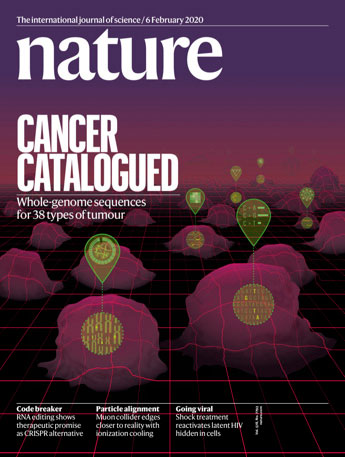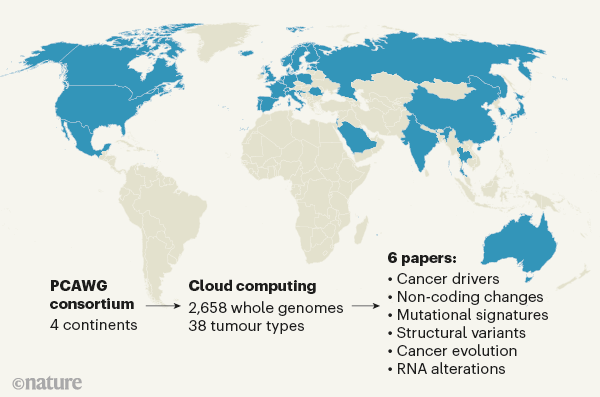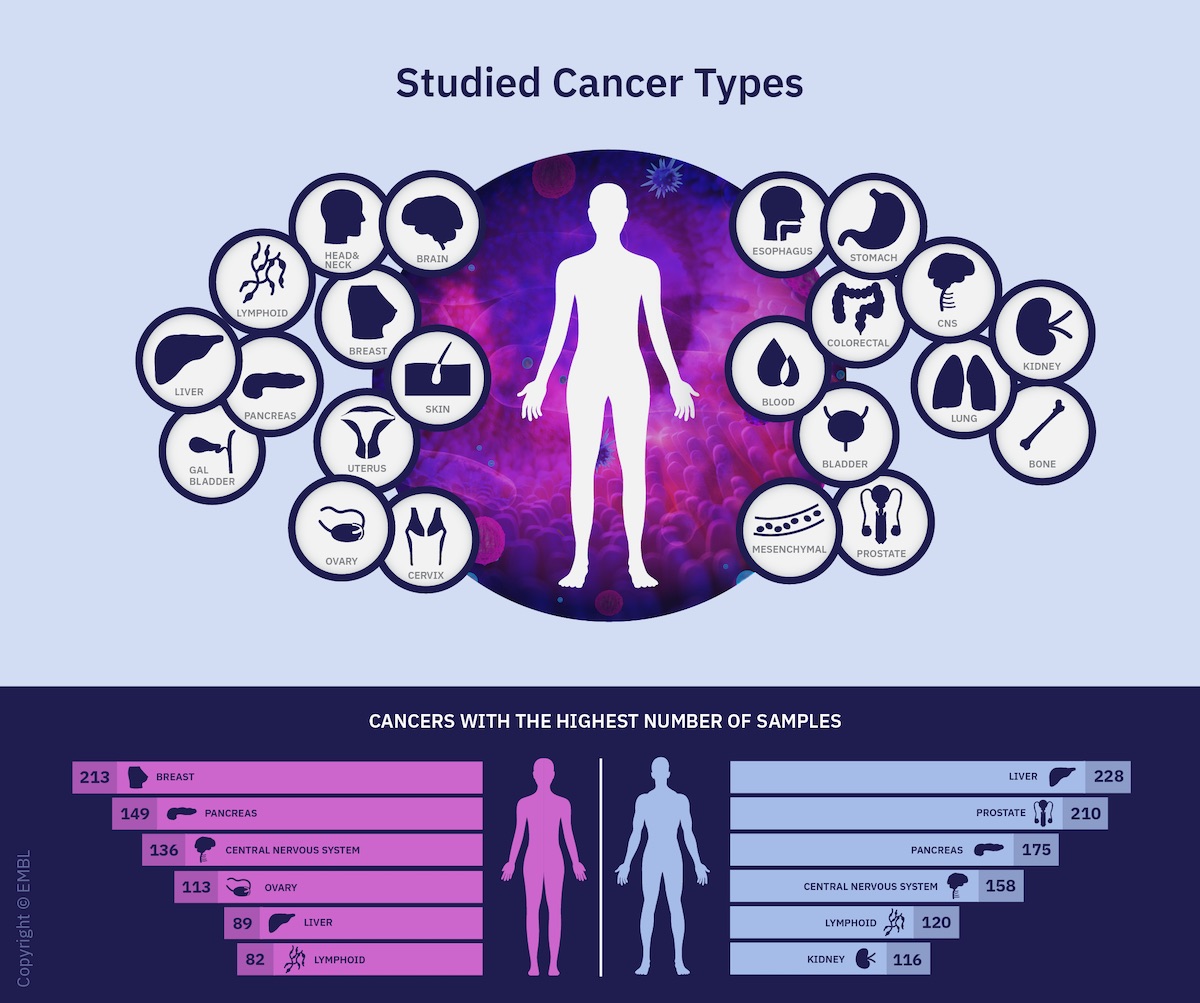Unprecedented exploration generates most comprehensive map of cancer genomes charted to date

An international team has completed the most comprehensive study of whole cancer genomes to date, significantly improving our fundamental understanding of cancer and signposting new directions for its diagnosis and treatment. The ICGC/TCGA Pan-Cancer Analysis of Whole Genomes Project (PCAWG), a collaboration involving more than 1,300 scientists and clinicians from 37 countries, analyzed more than 2,600 genomes of 38 different tumour types, creating a huge resource of primary cancer genomes.
The Department of Cancer Genetics has contributed to ICGC's catalogues of whole genomes, the foundation for the analysis performed by PCAWG.
Cancer is a disease of the genome, caused by a cell's acquisition of somatic mutations in key cancer genes. These mutations alter pathways involved in regulating cellular growth and interactions with the tissue environment. To address this issue, the ICGC/TCGA Pan-Cancer Analysis of Whole Genomes (PCAWG) Project performed whole‑genome sequencing and integrative analysis on primary cancers and their matching normal tissues. Results from the project was published this week in Nature and its affiliated journals; a collection of 23 papers covering a range of topics.
The members of PCAWG examine the evolution and structural variation of cancer genomes. They review genetic events that drive cancer and catalogue mutational signatures. They report integrative analyses of structural variation, evolutionary path and transcriptome data for many of the genomes and tumour types. Taken together, these papers offer a fresh perspective on the genetic complexity of cancer and provide a valuable resource for the exploration of the biological changes that drive the development of tumours.
This huge international study was only possible due to the work and collaboration of more than a thousand researchers and clinicians across the world. The contribution from the Department of Cancer Genetics was generated through the EU project "Breast Cancer Somatic Genetics Study" (BASIS), headed by Mike Stratton, and where professor Anne-Lise Børresen-Dale and researcher Anita Langerød played a central part. The BASIS project, supported by EU in the period 2010-2014, was part of the work of the International Cancer Genome Consortium (ICGC) (https://icgc.org/) on characterizing the cancer genome in a variety of different tumor types, including breast tumors.
Links:

Press release (from the Ontario Institute for Cancer Research (OICR) home page)
The article:
Pan-cancer analysis of whole genomes
The ICGC/TCGA Pan-Cancer Analysis of Whole Genomes Consortium
Nature volume 578, pages 82–93 (2020)
PDF version
All of the PCAWG-papers and related materials are available online at: www.nature.com/collections/pcawg
News and views, Nature, 05 February 2020:
Global genomics project unravels cancer’s complexity at unprecedented scale
PCAWG-project:
https://dcc.icgc.org/pcawg
The main publication from BASIS:
Landscape of somatic mutations in 560 breast cancer whole-genome sequences

